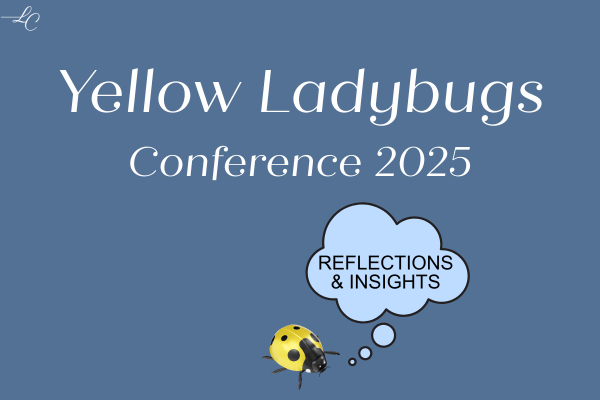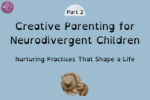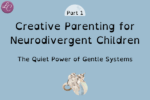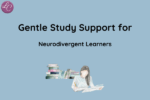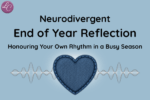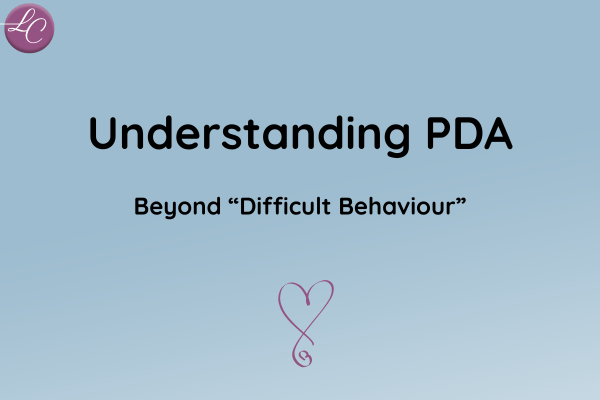
Understanding PDA: Beyond “Difficult Behaviour”
Understanding PDA – It’s Not About Being Difficult
Have you ever watched a child spiral into panic or meltdown after being asked to do something simple — like putting on their shoes or starting homework?
For many neurodivergent children (and adults), this isn’t about being difficult.
It’s often a sign of something deeper: PDA.
Understanding PDA (Pathological Demand Avoidance, or more compassionately, Pervasive Drive for Autonomy) helps us move beyond assumptions of “bad behaviour” and towards genuine support.
As a neurodivergent adult who works closely with ND children, I’ve seen firsthand how misunderstood this can be — and how differently we show up when we truly get it.
What Is PDA?
PDA is often described as a profile of autism, marked by an extreme need to avoid everyday demands. But it’s more than that. It’s a nervous system–based response to feeling trapped, controlled, or overwhelmed.
For a child with PDA, even small expectations can feel like the walls are closing in. Their heart races, their chest tightens, and they might lash out, freeze, or distract. This is their body’s way of protecting itself from perceived threat.
Common Signs of PDA
Children with PDA might:
- Suddenly melt down or panic when asked to do something — even if it’s fun
- Avoid demands through humour, distraction, or ignoring
- Show a strong need for control in play, routines, or conversations
- Resist transitions (even from one favourite activity to another)
- Be deeply empathetic yet easily overwhelmed by social dynamics
It’s not defiance. It’s an anxious system crying out for autonomy and safety.
How It Feels From the Inside
Imagine being told to do something — anything — and your entire body reacting like you’re about to be trapped.
Your chest feels hot, your skin prickles, and it’s suddenly hard to think straight.
For many people with PDA, even a gentle “time to brush your teeth” sets off this internal alarm.
They’re not choosing to be “difficult.”
Their nervous system is sounding the alarm — and they can’t move forward until they feel safe again.
Supporting Children (and Adults) With PDA
So how can we help?
- Reduce perceived pressure: Phrase requests as choices. “Would you like to start with your shoes or your jumper?”
- Invite collaboration: “We need to get ready soon — what should we pack first?”
- Create flexible plans: Build in downtime and keep routines gentle.
- Prioritise connection over compliance: Being safe, seen, and understood matters more than ticking tasks off a list.
- Regulate together: Your calm presence, soft tone, and even things like sound healing can help their system settle.
You Are Not Alone
If you’re raising a child with PDA traits, know an adult with these traits, or recognising these patterns in yourself, please know: you are not alone.
With understanding, we can create spaces where these children — and adults — feel safe to be exactly who they are.
Watch This Video
I explore this even more deeply in my video Understanding PDA in Children: What Parents and Teachers Need to Know.
If you’ve ever wondered whether your child’s resistance might be something more, this will give you clarity and compassion.
You might also like my blogs on 10 Traits of Neurodiverse People and How to Support Neurodivergent Teens — plus many more insights and conversations over on my YouTube channel.

